Decentralized finance (DeFi) exchanges are the direct opposite of centralized exchanges as they do not require any form of middle man or intermediary to carry out their transactions. In this article, we’ll be taking a look at some of the top DeFi exchanges.

DEXs, or decentralized (DeFi) exchanges, are peer-to-peer markets where cryptocurrency traders can conduct transactions without entrusting the management of their funds to a middleman or custodian.
Smart contracts are used by decentralized exchanges to let traders place orders directly with one another. DEXs were developed to do away with the need for any authority to monitor and approve trades executed within a particular exchange. DEX transactions are settled immediately on the blockchain, in contrast to centralized exchange transactions, which are stored in the exchange’s own database.
Having known what decentralized exchanges are, lets us have a look at some of the industry’s best known DeFi exchanges for transactions.
Top 10 DeFi exchanges
Based on our research, the top 1o DeFi exchanges for crypto enthusiast and investors are listed below.
- DeFi Swap
- PancakeSwap
- Uniswap
- 1inch
- Curve
- DYDX
- Perprtual Protocol
- Balancer
- SushiSwap
- IDEX
DeFi Swap
DeFi Swap is a decentralized exchange (DEX) that is run by the community and provides a range of services, such as token exchanges, staking, and yield farming.
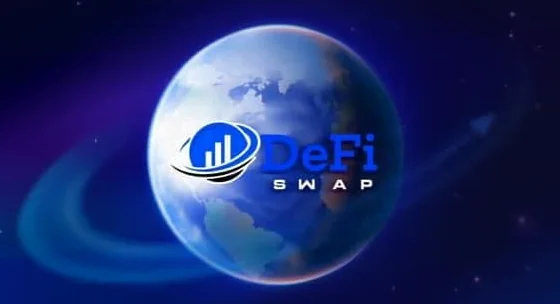
In addition to being regarded as one of the greatest DeFi programs available, DeFi Swap also supports the best DEX coins. The platform’s native currency, DeFi Coin (DEFC), serves as the means by which it is made operational.
Because the system is based on the Binance Smart Chain (BSC) network, you can purchase Binance Coin and then trade it for one of the supported tokens using DeFi Swap. DeFi Swap currently supports more than 50 well-known tokens, including DAI, USDC, USDT, and ANKR.
DeFi Swap additionally provides a staking feature that allows users to “lock up” their tokens for a predetermined time period and earn interest payments in exchange.
The liquidity pools of the exchange can also produce rewards. These liquidity pools enable you to earn a set rate of interest on your holdings of digital currencies and are made operational by smart contracts.
Pros
- Easy-to-use portal
- Supports more than 50 tokens
- Possibility to get passive income through DEFC investment
- Staking and yield farming techniques are available.
Con
- Application is still being Developed
PancakeSwap
One of the greatest P2P cryptocurrency exchanges for newbies is PancakeSwap, which provides a user-friendly web interface where you may swap tokens in a matter of seconds. PancakeSwap, like DeFi Swap, has been operational since September 2020 and is housed on the Binance Smart Chain.
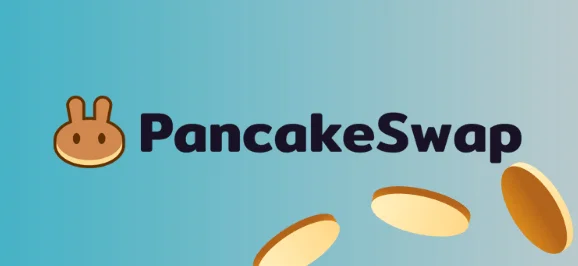
By linking your crypto wallet to the platform, you can exchange BNB for any of the many crypto tokens that PancakeSwap supports. PancakeSwap presently supports 10 different wallet providers, including MetaMask and Binance Wallet.
On all trades, PancakeSwap levies a 0.25% commission that is split between the exchange’s treasury and liquidity pools. In addition to token exchanges, PancakeSwap also provides “Syrup Pools,” which let you stake CAKE and get paid in the same token or a different token in return.
In addition, this decentralized cryptocurrency exchange provides specialized services like a “PancakeSwap Lottery.” Due to the ability for users to purchase tickets and win jackpots that frequently exceed $90,000 in value, it is one of the greatest cryptocurrency lottery websites.
Pros
- Little commission
- Simple trading interface
- Supports a large number of tokens
Cons
- Possibility of temporary loss
Uniswap
Uniswap should be taken into consideration if you’re seeking the top DeFi exchange with the biggest trading volume. When it comes to DEXs, Uniswap has the greatest market share, handling daily trade volumes of over $4 billion, according to CoinMarketCap.
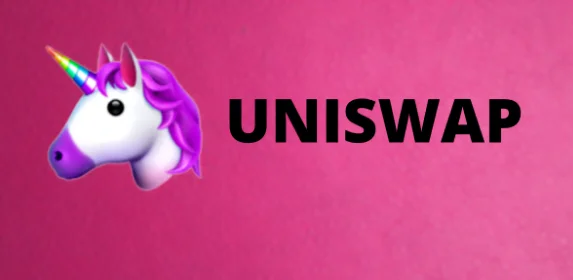
Uniswap is what is referred to as an “automatic market maker” (AMM), which means it is completely decentralized and uses smart contracts to facilitate trades and yield creation. Users of Uniswap have the choice of trading tokens or staking their assets in liquidity pools, with the latter offering yields that are comparable to (or superior to) those of the finest dividend equities.
Uniswap supports a huge variety of tokens because it is hosted on the Ethereum blockchain. The best part is that users don’t have to register or give up any personal information, so their entire transaction is basically anonymous.
Users can now purchase Uniswap and vote on governance initiatives using their tokens. On every transaction, Uniswap levies a 0.3% fee, which is then returned to the liquidity pools of the platform. Users must also deal with GAS fees, which can be rather expensive when the network is busy.
Pros
- Supports a large number of ERC-20 tokens
- Supports a number of popular crypto wallets
- High liquidity
Cons
- Gas costs might be very high.
1inch
An example of a DEX aggregator is 1inch. This indicates that it automatically compares prices on many decentralized exchanges to find you the most affordable option to complete a certain transaction. For the best rate, you may need to exchange your token more than once across several platforms.

The excellent thing is that 1inch doesn’t charge any costs for this procedure, albeit the exchange with which 1inch collaborates to complete your swap may charge fees.
Having access to tokens housed on Ethereum, Avalanche, BNB Chain, Polygon, and other chains makes 1inch one of the top cryptocurrency exchanges for multi-chain support.
Even better, 1inch provides a custom DeFi wallet that lets you store your holdings securely while purchasing cryptocurrency with a credit card.
Even better, you may purchase 1inch and stake your holdings in the liquidity pools of the platform to earn rewards in 1inch or another supported coin.
Additionally, a feature called “1inch Earn” provides an improved version of liquidity pools, enabling a yield that is more consistent. Last but not least, 1inch’s entire trading process is very streamlined, making it simple for newbies to trade cryptocurrency.
Pros
- No security breaches have ever occurred.
- supports more than 400 tokens across different chains
- Offers a proprietary DeFi wallet
Cons
- In the US, it is not regulated.
Curve Protocol
The Curve protocol, which is based on the Ethereum blockchain, is primarily concerned with yield production through liquidity pools and stablecoin trading.
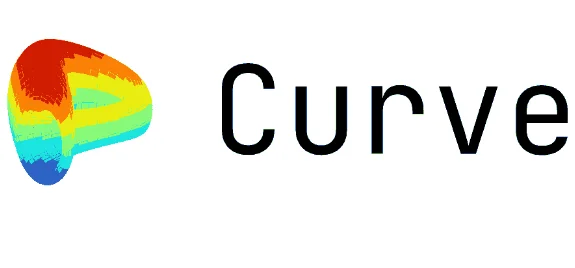
The 0.04% cost for swaps on the Curve platform is split between the Curve DAO’s members and liquidity providers. Curve now supports around 45 tokens, including USDC, DAI, USDT, and others, when it comes to asset selection.
The top DeFi exchange, Curve, offers a wide range of liquidity pools that can be used to generate a dividend on your stablecoin holdings. WalletConnect, Trezor, and Ledger are just a few of the top cryptocurrency wallets that Curve supports.
Additionally, you can purchase Curve and stake it to earn veCRV, which entitles you to vote on governance initiatives and generate passive income by receiving a cut of the trading fees accumulated.
Pros
- Low transaction costs
- Earn money from holding veCRV as a side income.
- Many tokens have double-digit yields.
Cons
Interest rates can frequently change drastically.
DYDX
Centralized banking and conventional cryptocurrency exchanges can both be substituted with the dYdX derivatives exchange. The goal of the dYdX derivatives exchange is to redefine how cryptocurrency trading is conducted.
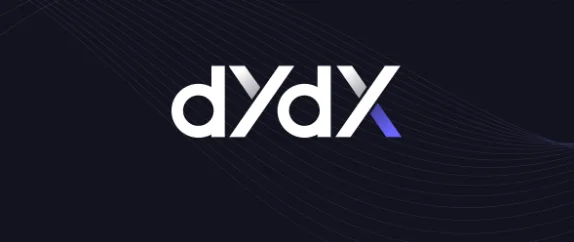
A decentralized exchange, the dYdX platform provides perpetual futures in addition to margin trading, spot trading, borrowing, and lending. Users who want to earn money when long or short on crypto assets should use it.
It enables users to trade a large number of cryptocurrencies while removing middlemen, emphasizing decentralization, and providing a reliable, user-friendly interface.
For cryptocurrency users whose needs go beyond the fundamental trading tools provided by conventional exchanges, the dYdX decentralized exchange is the best option.
Pros
- Low costs for regular users
- provides trading in crypto futures
- Obtain interest through lending.
Cons
- Fewer assets are available for swaps.
- Differential interest rates
- limited pairs for margin trading
Perpetual Protocol
The Ethereum blockchain is the foundation for Perpetual Protocol. Perpetual Protocol is a decentralized exchange (DEX), similar to Uniswap or PancakeSwap, that enables users to trade with leverage, short positions, and little slippage.
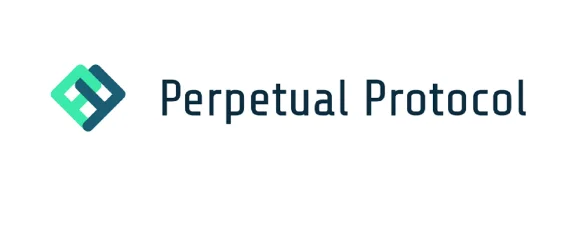
It’s a smart contract that executes trades through automated market makers (AMMs) as opposed to real persons or institutions. The AMM and insurance fund are two techniques used by the Perpetual Protocol to mimic the trade of perpetual contracts on conventional exchanges. Not available through Perpetual Protocol is spot trading.
The Perpetual Protocol’s native token, PERP, is essential to its management. Perpetual Protocol is currently being administered by a team and is still in its early stages. The ultimate goal, according to reports, is to hand over authority to PERP holders, with community growth and improvement borne by everybody.
PERP can be staked in addition to being an essential component of the network. Stakers receive half of the network’s trading fees in addition to the unallocated or freshly created token supply.
Pros
- Low fees
- High security levels
Cons
- Low Fees
- Flash Crashes
Balancer
The Ethereum-based program Balancer facilitates the operation of an exchange over a distributed network of computers. Balancer is a Liquidity Pool, Automated Market Maker (AMM), and Decentralized Exchange (DEX) protocol created specifically for sending ERC20 tokens without the assistance of centralized organizations.
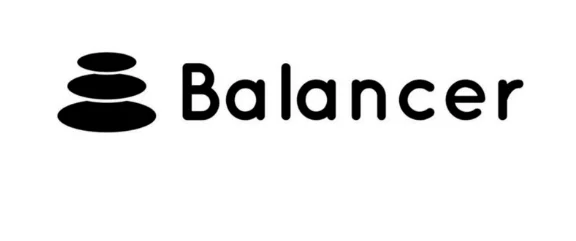
Anyone with a crypto wallet that supports it can utilize the platform since it doesn’t require authorization. It uses an algorithm to manage orders as opposed to centralized exchanges’ bid-and-ask system.
As a decentralized exchange platform, Balancer aims to assist investors and traders who want to swap assets or offer liquidity without relying on centralized intermediaries. One of the key ways that Balancer differs from other exchanges is the level of freedom and control it affords pool owners.
According to DeFi Pulse figures, Balancer has a locked-in value of around $2.19 billion. When swaps are completed through pools for which Balancer liquidity providers (LPs) supply liquidity, they make money from fees that are distributed proportionally to the LP’s stake in the pool.
Pros
- Complete decentralization of market making
- Anybody can add liquidity
- Decreased Gas prices
- Owners of Custom AMMs Pools may include as many as eight distinct assets in their pool.
Cons
The idea of the platform and connecting another wallet is difficult for people who are new to cryptocurrencies to understand.
Being a DEX, it is still possible to introduce fraudulent transfer tokens.
It could be possible to provide more instructional materials so that customers can get a step-by-step breakdown of how to use the platform.
SushiSwap
Another decentralized exchange, SushiSwap, employs smart contracts to build new markets where various token combinations can be traded. SushiSwap is an automated market maker (AMM) platform for cryptocurrencies.
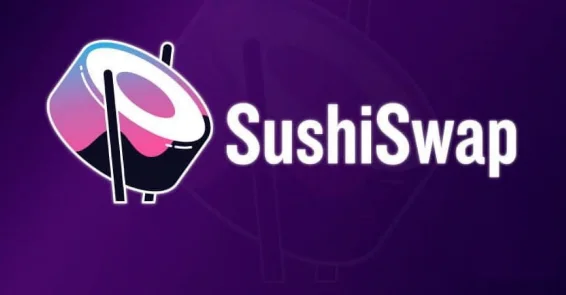
A fork in Uniswap led to the creation of SushiSwap. SushiSwap aims to broaden the AMM market by introducing new services that are not present on Uniswap, as well as enhanced rewards for network users via the native token SUSHI.
Sushiswap uses the automated market maker function to automatically assign buyers and sellers and establish the pricing rather than using a peer-to-peer (P2P) network or order book.
By giving users more influence over the platform’s operations and future, SushiSwap seeks to enhance the services offered by Uniswap.
SushiSwap’s token exchanging protocol works with a number of different blockchains in addition to Ethereum. A multi-chain network called SushiSwap enables users to exchange assets between various blockchains.
Pros
- SushiSwap offers more than 100 ERC20 trading pairs.
- There are numerous SUSHI-based projects that involve staking, farming, trading, liquidity pools, and more.
- The SushiSwap exchange is simple to use and navigate.
Cons
- SushiSwap has high gas costs
- SushiSwap can be challenging for new users to use.
- The trade raises certain security issues.
IDEX
In terms of decentralization and community ownership, IDEX Exchange is the most sought-after trading platform in the modern era. It combines clients controlled exchange with the security benefits of decentralized trading.
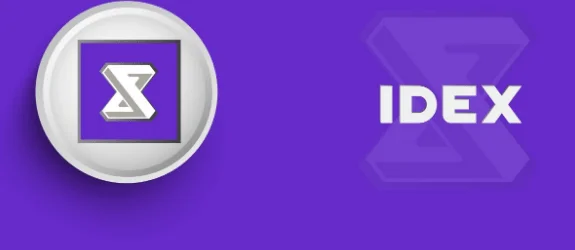
The most cutting-edge cryptocurrency exchange in the world, IDEX Exchange is a comprehensive and sophisticated trading platform for cryptocurrency lovers. It is quick, reliable, and offers total security to account holders across the nation.
The IDEX Exchange platform updates Ethereum transactions using smart contracts, enabling account holders to securely and online update their balance. The majority of nations throughout the world offer IDEX Exchange. Users can take part in the staking program as well to receive alluring incentives.
IDEX Exchange consistently creates profitable competitions and promotions for users to participate in and win.
Investment in stocks requires a fundamental understanding of how online day trading operates. Similar trading practices are used with IDEX Exchange while exchanging stocks of cryptocurrency.
Pros
- Trading is very secure and encrypted.
- Staking scheme with rewards for stakers.
- Payments between cryptocurrencies can be made fast.
- supports Ethereum and Binance smart chains
- Integrates with Metamask wallet.
- Nice user interface for simple fund administration and trading.
Cons
- Customers cannot exchange Bitcoins.
- Trading cryptocurrencies can be difficult for beginners.
- Requires the assistance of a number of other digital currencies.
